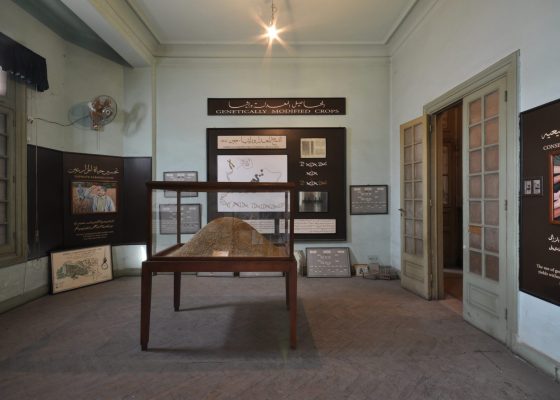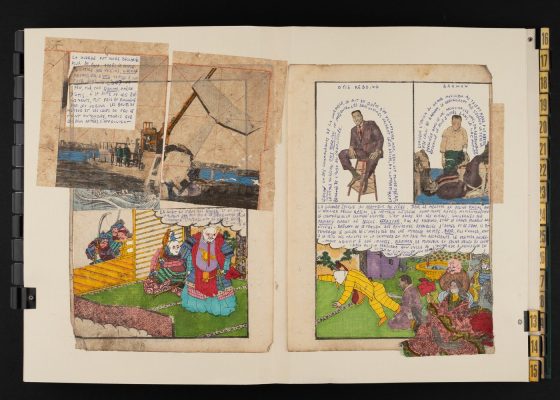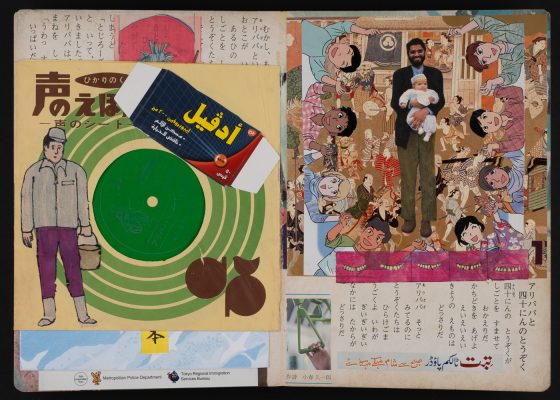In conjunction with the exhibition The Peasant, the Scholar and the Engineer by Asuncion Molinos Gordo, this two-day symposium brings together artists, scholars, and researchers to reflect on agrarian knowledge, cultural memory, and the role of rural communities in shaping their own futures. Through panels, lectures, and screenings, the programme looks at how the role and significance of farming communities, from the Middle East to North Africa, Spain and beyond, have changed over the past 15 years, a period shaped by major economic shifts, climate change and political upheavals.
The programme invites audiences to engage with urgent questions around how land is used, who works it, and what happens when these relationships are disrupted. It considers histories of farming, migration, and policy as they relate to rural life, while reflecting on our responsibility to recognise the agency, resilience and knowledge embedded in farming life.
The first day centers on rural life and farming knowledge, touching on themes of food justice, ecological repair, and the intellectual labour of farmers. The second day focuses on broader Mediterranean imaginaries, exploring the shared cultural practices, ruins, and ghosts that shape our ideas of tradition, migration, and ecological wisdom.
Speakers include Asunción Molinos Gordo, Dr. Rami Zurayk, Anahi Alviso-Marino Biso, Nezar Andary, Rafael SM Paniagua, Andrea Pacheco, and Cooking Sunshine.
This programme is available for live streaming through this link here.
Register to the Offsite Visit to Falaj Al Ain (Al Ain Oasis) on Sunday 28, 2025 at 2:00pm here.
About the Speakers:
Asunción Molinos Gordo is a research-based artist strongly influenced by anthropology, sociology and cultural studies. Her practice questions the definition of innovation in contemporary mainstream discourses, working to generate a less urban-centric way of understanding progress. She has produced work reflecting on land use, nomad architecture, farmer strikes, territorial bureaucracy, transformation of rural labour, biotechnology and global food trade.
Dr. Rami Zurayk is a scholar activist specializing in ecosystem management and food systems. He earned his DPhil in Plant Science from Oxford University and is currently a professor at the Maroun Semaan Faculty of Engineering and Architecture at the American University of Beirut (AUB). Dr. Zurayk has made significant contributions to the field of socioecological and food systems. His research explores the intersection of landscapes, livelihoods, food politics, and political ecology. As an active voice in Arab civil society, he co-founded the Arab Food Sovereignty Network. His publications include Food, Farming and Freedom: Sowing the Arab Spring and War Diary: Lebanon 2006. Dr. Zurayk’s academic and activist efforts have earned him recognition on various advisory committees, including the High-Level Panel of Experts on Food Security and Nutrition and the EAT-Lancet Commission on Healthy Diets from Sustainable Food Systems.
Rafael SM Paniagua works, teaches, researches, and creates at the intersection of aesthetics, the arts, and philosophy, focusing on the social dimension of art and minor cultures. He has extensive research and teaching experience, developed at national and international university centers, always interested in the margins between institutionality and society. As a member of the Permanent Laboratory on University Cultural Policy at La Madraza (University of Granada’s Center for Contemporary Culture), he contributes to institutional reimagining efforts, including the transformation of Casa de Porras into the Popular University of Noon.
Andrea Pacheco González, is a Chilean curator and independent researcher based in Madrid, whose work explores contemporary debates on memory, migration, diaspora, and transnational identities. She was curator of the Chilean Pavilion at the 60th Venice Biennale (2024) with Cosmonación by Valeria Montti Colque. Her recent curatorial projects include Colonial Memory in the Thyssen-Bornemisza Collection (2024), Latina. Women, Music and Glamour in the Gladys Palmera Collection (Casa de América, Madrid, 2025), and Heart Lungs Liver. Think with the guts (Matadero Madrid, 2019). Pacheco teaches curatorial studies at Nebrija University (Madrid) and directs the research platforms FelipaManuela and Instituto de la Tierra, while also editing and publishing books on art, memory, and cultural history.
Anahi Alviso-Marino is a scholar and researcher whose work focuses on cultural production across cities of the Arabian Peninsula. She holds a PhD in Political Science from the Sorbonne University-Paris 1 and the University of Lausanne, and an MA in Middle Eastern and Asian Languages and Cultures from Columbia University in New York City. Her current research examines how the making and un-making of monuments and memorials to reflect broader tensions around history, visibility, and politics of memory. Besides publishing her work, her hybrid methods retrace, activate and produce research materials and archives through films Monumenting, 2024, exhibitions (Villa Vassilieff 2017, Palais de Tokyo 2018, CAP Kuwait 2025) and game-type protocols in public programs (Alserkal Arts Foundation 2022, and the French Research Centre of the Arabian Peninsula Kuwait 2023).
Nezar Andary is a filmmaker, writer, and curator. His award-winning film, Unlocking Doors of Cinema (2020), has been screened at many festivals, from the Cairo International Film Festival and the San Francisco Documentary Festival to Doc Lisboa in Portugal. He recently finished production of We are not Islands, We are the Water Between Them, a film on visual artist Tarek Al-Ghoussein’s final project, Odysseus. He is widely published in literature and history and co-edits a book series for Palgrave entitled Focus on Arab Cinema. He has been Artistic Director of the Al Sidr Environmental Film Festival and also the artistic director of the Performing Books Season with the House of Wisdom in Sharjah. Currently, he works on two feature film projects: The Home of Anthony Shadid and The Guilt Project.
Cooking Sunshine is an art and social practice-based project that was established in winter 2022 by Egyptian artist duo Lamis Haggag and Mina Nasr. Together, they documented traditional techniques of fermenting and drying food through sunshine in various cultural contexts. Their project spans researching, gathering and recreating recipes with members from the different communities during their visits, organizing communal meals, workshops and exhibitions. Navigating storytelling, drawing, installation-making, creating publications such as their cookbook in 2023 and their zine/menu in 2024; and building solar cooking devices as art installations—they donated the installations to the different communities— Their project received support from different institutions including Kamel Lazaar Foundation (KLF), Tunisia; Fulbright Alumni Community Action Grant, USA; Canada Council for the Arts Canada; Roberto Cimetta mobility Fund, research residency from Lapa, Goethe Institute, Johannesburg, South Africa. In addition to recognition from The Nile Journeys organization and Brussels Institute for Advanced Studies (BrIAS).
SEE ALL EVENTS


